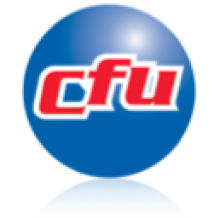Monticello Lawsuit Saga Over; MN Supreme Court Declines Review
In a quick followup, the Minnesota Supreme Court has affirmed the obvious by refusing to review the Appeals Court decision in the TDS (acting as "Bridgewater") v. Monticello case. This means the Appeals Court decision stands; Minnesota cities have the authority to bond for broadband networks. Read our previous coverage of this case here.
When TDS originally sued Monticello, the City had to place the investor money (raised via non-recourse revenue bonds) into escrow for the duration of the case. If the case were not resolved by June 19, 2009, Monticello would have had to return the funds to the investors, leaving it unable to finance the project. Bonding again would have almost definitely resulted in less favorable terms than those achieved before the economic meltdown.
Following the Appeals Court decision, on June 2, 2009, TDS could have had up to 30 days to request review from the Supreme Court. John Baker, an attorney from Greene Espel who represented the City throughout the process, asked the Supreme Court to expedite the review in order to prevent TDS from merely using its thirty days to run out the clock (thus winning the war while having lost every single battle).
Today, the Supreme Court sided with the Appeals Court and an obvious reading of Minnesota law: Minnesota cities are well within their authority to bond for and build broadband networks.
Monticello will immediately start work on the city's publicly owned fiber-to-the-home network. TDS has argued that such a network would now be redundant as they built a fiber network while abusing the courts to stall for time. However, it remains to be seen if TDS is truly connecting all homes with fiber, or is still using copper for that final connection (much like AT&T does in its U-Verse). The top TDS advertised speeds are 25 down and 10 up, which can be achieved with VDSL.
If TDS has truly built a fiber-to-the-home network, Monticello will be the first place in the U.S. with competing full fiber networks. However, I'm not sure that TDS will be able to compete with FiberNet Monticello on some fronts as TDS offers it television via a partnership with a satellite company. Monticello will undoubtedly have more local content and probably better customer service.
Lest you think the court battle is over, Monticello is entitled to recover some of its costs due to the lawsuit.




